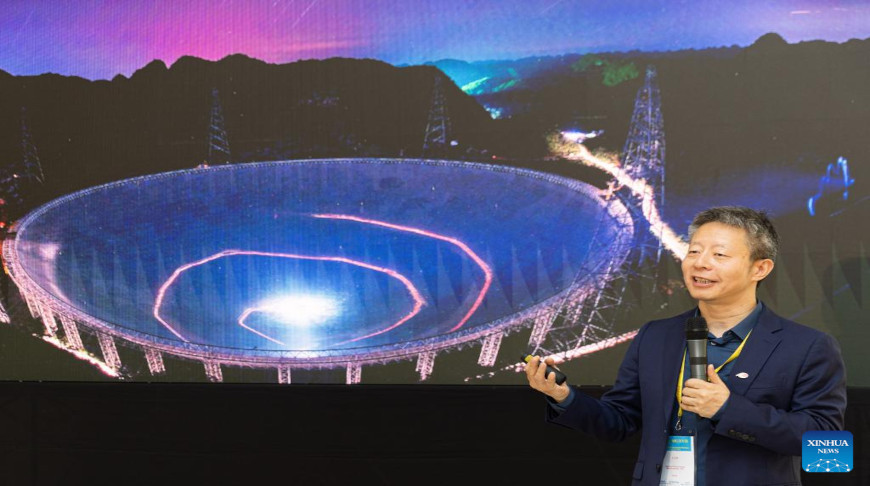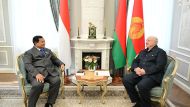
PESCARA, 10 July (BelTA - Xinhua) - Chinese radio astronomer Li Di was
awarded the Marcel Grossmann Award on Tuesday for his research
contributions in the field of fast radio burst (FRBs).
Li, the chief scientist of China's Five-hundred-meter Aperture Spherical Radio Telescope (FAST), is the first Chinese scientist to receive the prestigious physics prize for achievements accomplished in China.
Li was awarded for his groundbreaking contributions to the scientific capabilities of the world's most sensitive radio telescope, including precise measurements of interstellar magnetic fields and advancing the study of FRBs to a high statistical significance, according to the committee of the 17th Marcel Grossmann Meeting, currently underway in Pescara, Italy, until Friday.
"Humans share the same sky, and the international opening of astronomy is inevitable," Li told Xinhua in an interview. "Strengthening China-EU cooperation, especially through the open sharing of astronomical data between the two sides, can greatly advance cutting-edge exploration and effectively prevent decoupling."
"Li's latest contributions, in the field of the mysterious FRBs in particular, have really moved our understanding forward," said Michael Kramer, director of the Max Planck Institute for Radio Astronomy.
Li's scientific leadership in the FAST telescope project and the discoveries enabled by this remarkable instrument make this award truly exceptional, Kramer added.
The Marcel Grossmann Award, established in 1985 and presented every three years, is considered one of the most prestigious international awards in physics. Previous Chinese laureates include Nobel Prize winners Yang Zhenning and Li Zhengdao, as well as world-class mathematician Qiu Chengtong.
The Marcel Grossmann Meeting, initiated in 1975, aims to promote research in gravity, relativity, and related areas, focusing on mathematical foundations, physical predictions, and experimental tests.
Li, the chief scientist of China's Five-hundred-meter Aperture Spherical Radio Telescope (FAST), is the first Chinese scientist to receive the prestigious physics prize for achievements accomplished in China.
Li was awarded for his groundbreaking contributions to the scientific capabilities of the world's most sensitive radio telescope, including precise measurements of interstellar magnetic fields and advancing the study of FRBs to a high statistical significance, according to the committee of the 17th Marcel Grossmann Meeting, currently underway in Pescara, Italy, until Friday.
"Humans share the same sky, and the international opening of astronomy is inevitable," Li told Xinhua in an interview. "Strengthening China-EU cooperation, especially through the open sharing of astronomical data between the two sides, can greatly advance cutting-edge exploration and effectively prevent decoupling."
"Li's latest contributions, in the field of the mysterious FRBs in particular, have really moved our understanding forward," said Michael Kramer, director of the Max Planck Institute for Radio Astronomy.
Li's scientific leadership in the FAST telescope project and the discoveries enabled by this remarkable instrument make this award truly exceptional, Kramer added.
The Marcel Grossmann Award, established in 1985 and presented every three years, is considered one of the most prestigious international awards in physics. Previous Chinese laureates include Nobel Prize winners Yang Zhenning and Li Zhengdao, as well as world-class mathematician Qiu Chengtong.
The Marcel Grossmann Meeting, initiated in 1975, aims to promote research in gravity, relativity, and related areas, focusing on mathematical foundations, physical predictions, and experimental tests.













